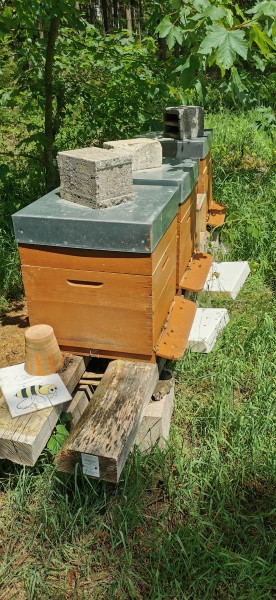The 2021 honey season can safely be interpreted as a disaster. The winter lasted far too long in the country, froze fruit blossoms and prevented the bees from flying out. However, the bees urgently needed supplies for the melting winter stores, as the colonies were already growing again. And so the first beekeepers had to lament the first starving colonies already at the end of May, others were able to feed just in time.
The winter was followed by a completely rainy spring, which once again prevented a large Tracht (as the pollen and nectar collection of the bees is called). Feeding was necessary again.
The summer of 2021 was very short and the only time in Mersch when the bees could store some honey, but then they had to consume most of it themselves to make ends meet. This left the beekeeper with only very small amounts of harvestable honey, which will be used up quickly. There is no question of selling this year.
Many beekeeper friends experienced other disasters this year, such as the loss of numerous bee colonies due to the flooding of the Alzette after the heavy rains in July. Many beekeepers joined me in helping to compensate for these losses as much as possible. Thank you for that!
Now we are in the approaching autumn, once again the colonies have to be fed and treated against a relatively heavy infestation of varroa mites. Hopefully they will all come through the winter well.
In September I came across a Ukrainian beekeeping market by chance and what was there to discover: Hunnegdrëps with four kinds of nuts, honey mixed with propolis, uncapping wax with honey residues as a delicacy with high health value and wax moth extract. The latter will occupy us in a forthcoming article. So stay in touch with us and stock up in time with local honey in sufficient quantity for the winter! If not from me for lack of goods, then from our brothers in spirit, the Lëtzebuerger Beieziichter!
Here is an entertaining video of the ejection of the drones at the end of the swarming period.

